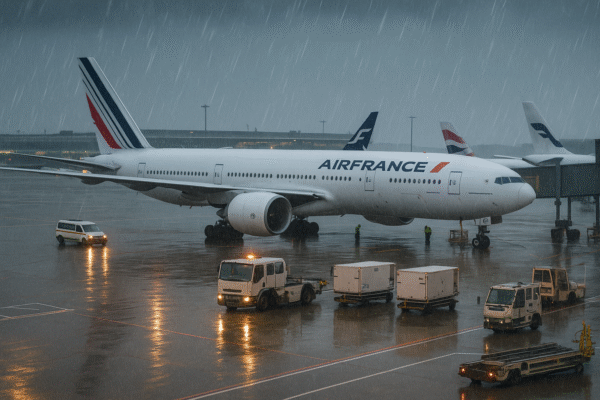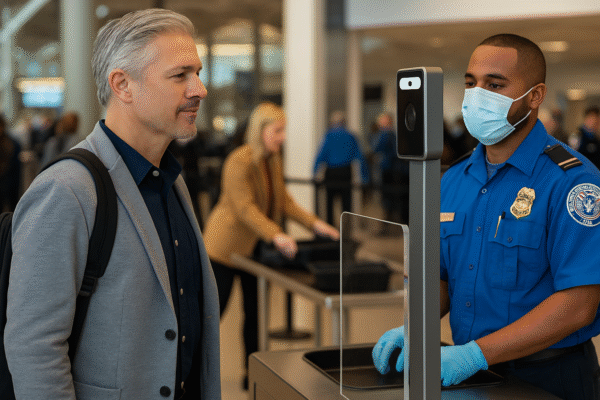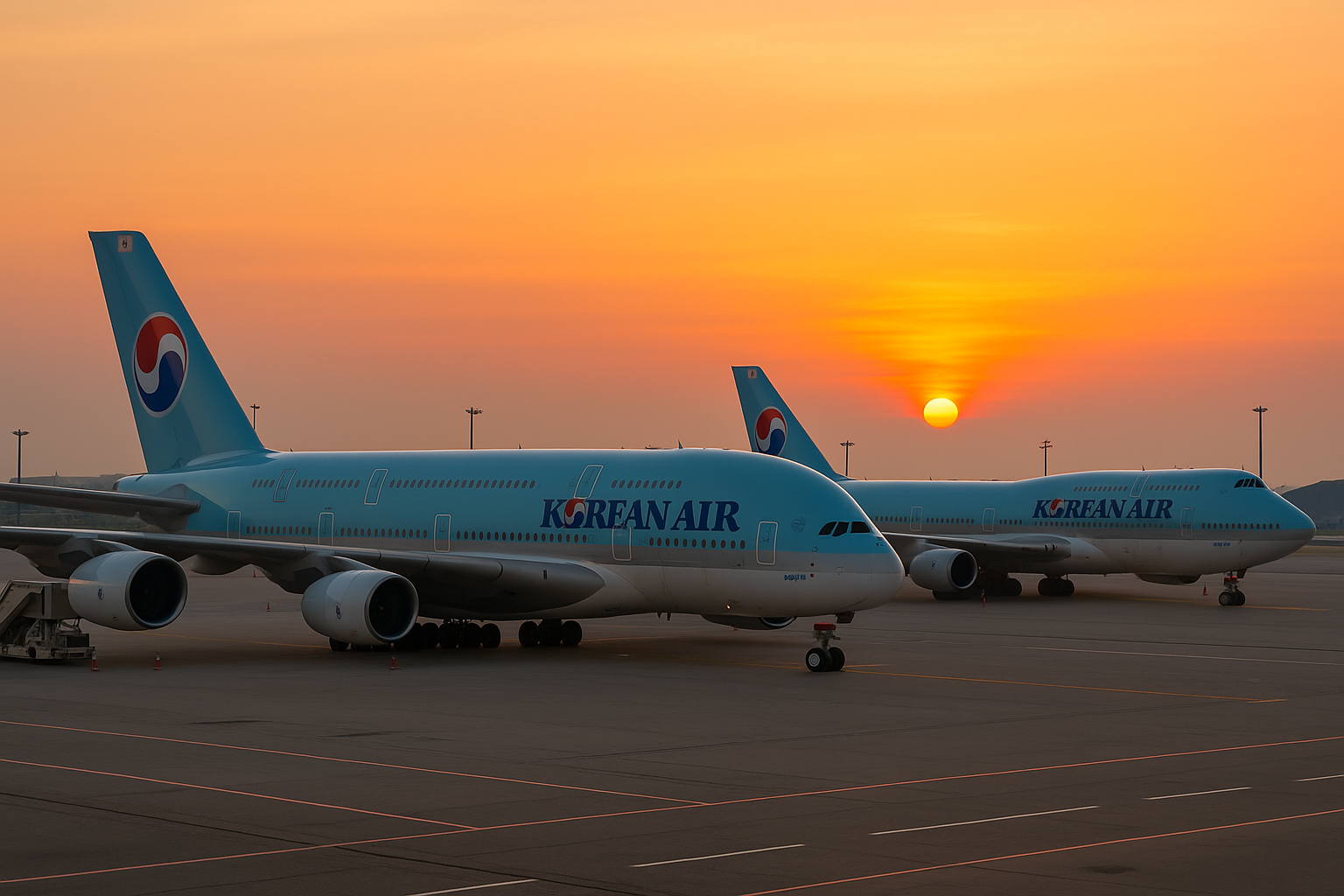In a rare and thrilling move for aviation enthusiasts and long-haul luxury travelers alike, Korean Air has confirmed it will continue operating its iconic Airbus A380 and Boeing 747-8 aircraft for the foreseeable future. Originally scheduled for retirement by 2026, the jumbos will remain in service longer than planned as the airline faces significant delays in receiving next-generation aircraft from Boeing and Airbus.
This strategic extension, announced by Korean Air Chairman and CEO Walter Cho, signals a bold balance between nostalgia and necessity as the carrier modernizes its fleet while preserving its most majestic aircraft for international travelers.
Delivery Delays Push Back Retirement of Aviation Icons
Korean Air, South Korea’s flag carrier, has experienced aircraft delivery delays affecting both Airbus and Boeing, including the A350, Boeing 787 Dreamliner, and the 777-9. With each manufacturer falling behind by an estimated 20 aircraft, Korean Air is adapting by extending the operational life of its current wide-body aircraft, including the A380 superjumbo and Boeing 747-8 Intercontinental.
Cho emphasized that although the long-term vision is to phase out these four-engine giants in favor of more fuel-efficient twinjets, the current shortage has made such a transition impractical in the near term. The result? A continued era of jumbo-jet elegance on Korean Air’s premium long-haul routes.
A380 Experience: Double-Decker Luxury Redefined
Korean Air debuted its Airbus A380 in 2011 and quickly distinguished itself with unique onboard features, including:
- A luxury duty-free boutique on the lower deck
- Two exclusive lounges for First and Prestige Class passengers
- A highly spacious cabin layout with fewer seats than many peers, prioritizing comfort
The boutique replaced two rows of economy seating but became a standout feature that elevated inflight retail and passenger experience. Korean Air was the first—and remains one of the only—airlines to convert lower-deck space into a high-end shopping lounge, offering premium cosmetics, spirits, and fragrance selections mid-flight.
With the impending Asiana Airlines merger, Korean Air is set to inherit additional A380s, potentially increasing its total fleet to 13. Whether these will be repainted in Korean Air’s sleek new branding is yet to be confirmed.
747-8: The Queen Still Reigns
The Boeing 747-8, the last passenger version of the legendary jumbo jet, continues to fly proudly under Korean Air’s banner. Only two other carriers—Lufthansa and Air China—still operate this variant, making Korean Air’s fleet one of the last to offer passengers the chance to fly aboard this iconic aircraft.
Famed for its graceful profile and transcontinental range, the 747-8 plays a key role on routes such as Incheon to Los Angeles, New York (JFK), and Paris Charles de Gaulle—premium routes where passenger experience matters most.
Fleet Upgrades in Progress: New Suites and Class Enhancements
While maintaining its jumbos, Korean Air isn’t standing still. CEO Walter Cho revealed several upgrades across the broader fleet:
- First Class Suites: A next-generation cabin design is under development, promising elevated privacy and personalization.
- Premium Economy: Korean Air is finally introducing this increasingly in-demand class on its Boeing 777 fleet.
- Business Class Enhancements: The airline will roll out Prestige Suites 2.0, a refreshed take on its signature staggered-seat configuration.
These investments reflect a long-term vision of combining modern comfort with the airline’s award-winning service, ensuring that passengers continue to enjoy a seamless premium travel experience, even as aircraft models evolve.
A Temporary Measure with Long-Term Loyalty Value
Korean Air’s decision to continue flying its jumbo jets is not just about logistics—it’s also a tribute to passenger loyalty and brand legacy. Many frequent flyers still prefer the space and ambiance of the A380 and 747-8 over newer twin-engine jets.
This “balancing act of old and new,” as industry analysts describe it, is Korean Air’s way of bridging present operational demands with future fleet modernization, ensuring both business continuity and customer satisfaction.
Moreover, this strategic move strengthens Korean Air’s positioning ahead of its Asiana Airlines integration, which will further consolidate its dominance in Northeast Asian aviation and significantly increase its long-haul capacity.
Global Routes Still Graced by Aviation Royalty
Travelers departing from Incheon International Airport (ICN) can still find the A380 and 747-8 on key intercontinental routes to:
- Los Angeles (LAX)
- New York (JFK)
- London Heathrow (LHR)
- Paris (CDG)
- Sydney (SYD)
Passengers seeking a unique inflight experience—or wanting to tick the A380 or 747-8 off their aviation bucket list—are encouraged to book early, as these aircraft continue to enjoy high demand among aviation aficionados.
Conclusion: A Legacy Worth Extending
As Korean Air navigates the challenges of aircraft delivery delays, it continues to prioritize both passenger experience and operational resilience. The decision to keep the A380 and 747-8 flying reflects not only smart fleet management but also a deep respect for aviation heritage and passenger expectations.
With fleet upgrades underway, new partnerships emerging, and passenger confidence growing, Korean Air remains one of the world’s most dynamic and forward-looking carriers—offering travelers the rare chance to fly in aircraft that have helped define the golden age of air travel.
For now, the “queens of the sky” are here to stay—and that’s something every global traveler can celebrate.
For more travel news like this, keep reading Global Travel Wire
















